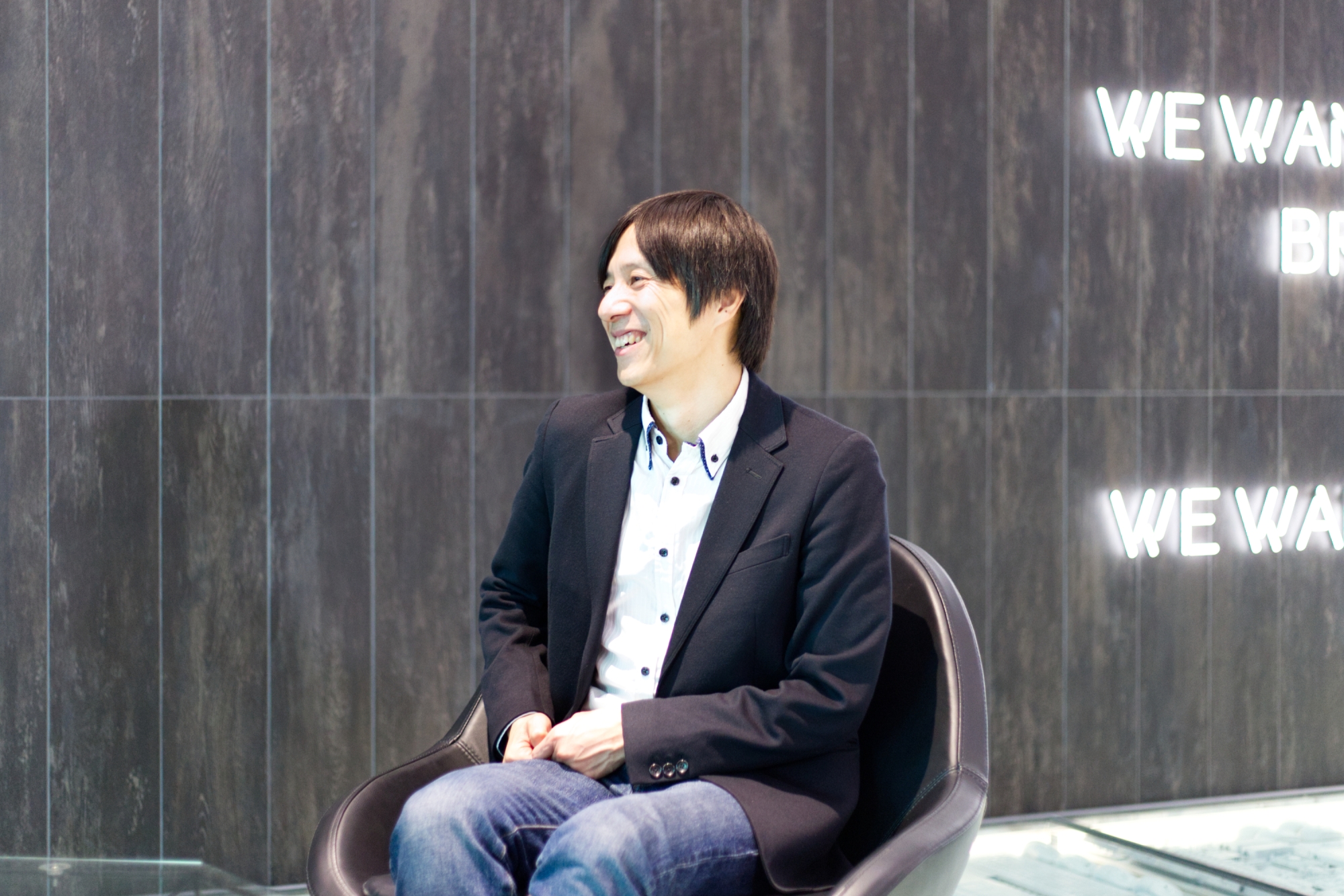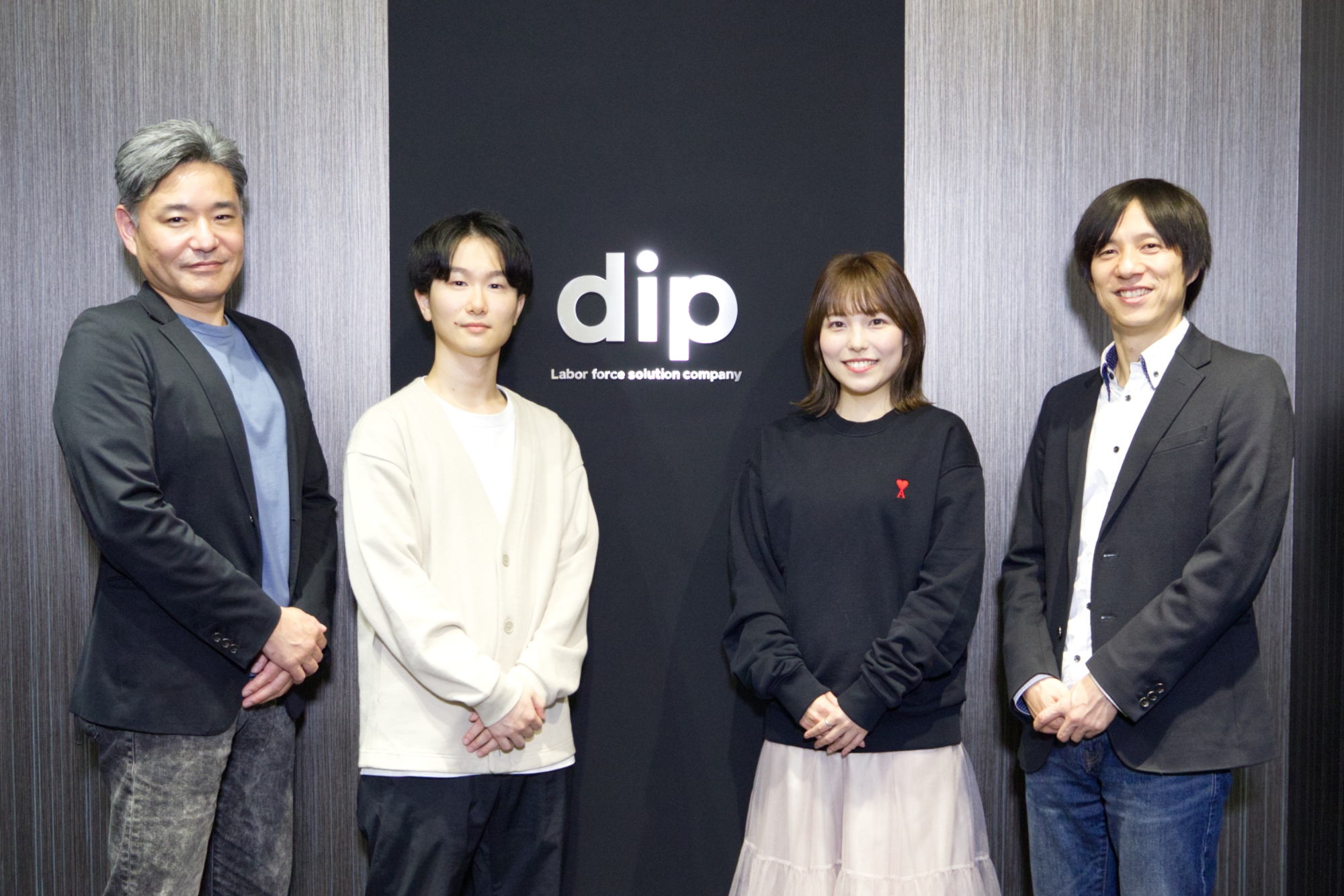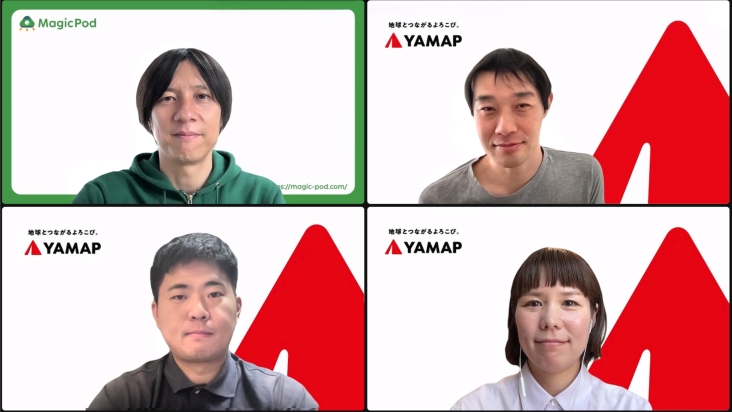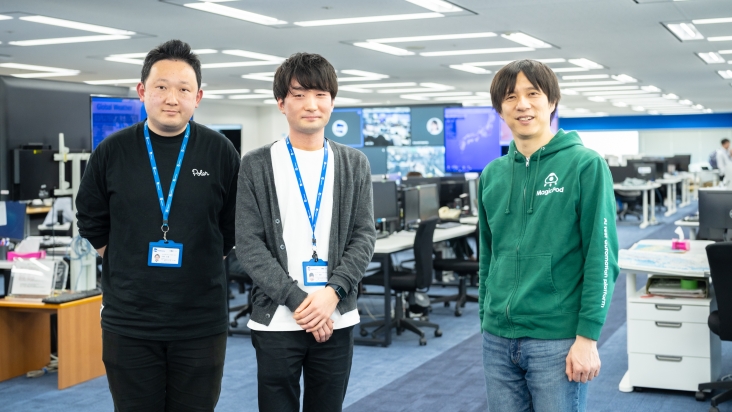Through MagicPod, we aim to strengthen the collaboration between QA and development, leading to an overall improvement in service quality.
dip Corporation
In the 17th edition of our user interviews, we had the opportunity to speak with representatives from dip Corporation, alongside Mr. Ito, CEO of MagicPod. We delved into a variety of topics, including specific use cases and the decisive factors in selecting MagicPod.
dip Corporation
Upholding the vision as a 'Labor Force Solution Company' that aims to solve various challenges in the labor industry and realize a society where everyone can feel the joy and happiness of working, dip Corporation operates DX business that provides human resources services such as 'Baitoru' and the 'Kobot' series.
KEY POINTS
- Development team faced a challenge as they couldn't fully concentrate on development due to testing.
- Ease of use for non-engineers was a decisive factor to implement MagicPod.
- Enhanced communication between QA and development teams contribute to improvement in quality.
- The confidence gained from using MagicPod enabled a more proactive approach to development.

From right to left:
Mr. Naoki Yamamoto, Director of Growth Engineering Department and Quality Control Department
Ms. Chihiro Sakamoto, QA Engineer, Quality Control Department
Mr. Eiji Shirakazu, iOS Engineer, Baitoru Engineering Department
The Journey to Implementing MagicPod
Ms. Sakamoto (hereafter referred to as Sakamoto): I joined dip Corporation in April 2023. Currently, in the Quality Assurance Engineering division of the Quality Control Department, I mainly perform defect analysis and suggest improvements to the testing processes for our in-house services. In my previous role as a QA Engineer, I had also used MagicPod.
Mr. Shirakazu (hereafter referred to as Shirakazu): As an iOS engineer, I'm responsible for feature development and rearchitecting (system redesign) of the 'Baitoru' app. I began at dip as a pre-employment intern in October 2021, joined the Baitoru team, and became a full-time employee as a new graduate in 2022. Currently, alongside development, I also engage in activities to improve and maintain our development environment, such as the CI/CD tools and developer accounts used within the team.
Mr. Yamamoto (hereafter referred to as Yamamoto): I joined dip in January 2022, serving as the head of both the Growth Engineering Department, responsible for development, and the Quality Control Department, to which QA Engineers belong. Actually, I have a long history with test automation, having been involved in the development of test automation programs for Windows applications in the 2000s.
The Quality Control Department was established just this April 2023. It consists of three members, including Ms. Sakamoto, along with several engineering department heads who serve concurrently as founding members. When including those with dual roles, the organization now has over ten people.
Mr. Ito (CEO of MagicPod): You've been using MagicPod since September 2021, but what were the challenges you faced before its implementation?
Sakamoto: This dates back to before I joined the company, but at that time, the development team was conducting unit tests, integration tests, and comprehensive tests, and the problem was that testing took up man-hours, and they couldn't concentrate on development.
Shirakazu: Indeed. Around the time I joined as an intern in 2021, we spent several days manually conducting comprehensive tests, which slowed down our development speed. And I think as developers, because we really want to code, this situation led to a decrease in motivation.
Yamamoto: Previously, each development team was assigned external QA engineers for their testing activities, but there was no organization to supervise quality control as a whole.
Shirakazu: The depth of understanding of the specifications varies among team members. Even with a single test item, this gap in comprehension led to perceptual differences, which became a problem.

Decisive Factor in Implementing MagicPod
Ito: Could you share how you decided to implement MagicPod?
Sakamoto: Initially, various tools, both domestic and international, were considered. From these, the choice was narrowed down to domestic tools for easier support, and further to those supporting both iOS and Android. After a process of elimination, two final options remained, which included MagicPod. Actually, we had already implemented an automation tool on the web side, but it didn’t support iOS and Android at that time. For that reason, we decided to consider a different tool for the mobile side.
Ito: I remember feeling down when we didn't hear back from you for a while after the trial, thinking, 'Maybe it didn't work out...'
Shirakazu: Me too, I remember the person evaluating it was really struggling with the decision (laughs).
Sakamoto: Ultimately, the key factors for choosing MagicPod were 'its wide variety of assertions' and 'the ease of creating scenarios, even for non-engineers, due to its no-code environment.' I also used it in my previous job, and its rich features made me think, 'Once you start using MagicPod, you might not need any other tools.
Also, before I became a QA engineer, I had a different field of work, barely using computers. Upon transitioning to a new role where I began using MagicPod, I initially felt anxious, but its intuitive operation was of great help. For dip, the ease of use for non-engineers and the low learning cost were significant factors in the decision to implement MagicPod.
Ito: Hearing 'it was easy to use' from those inexperienced is convincing and appreciated. As for mobile, we started with it, so we're putting pretty significant effort into its functionality.

Utilization of MagicPod
Ito: How are you currently using MagicPod?
Sakamoto: While there are differences based on the product, teams performing app QA basically use MagicPod, mainly for the following two functions:
- Regression testing during the comprehensive testing phase for degradation checks.
- Regular execution using BrowserStack.
These regular executions include both iOS and Android devices and are carried out daily, including weekends, across six devices at various resolutions.
Ito: Is the regular execution integrated with a CI tool?
Shirakazu: Currently, we build the app using Bitrise and then QA manually uploads it. From a development perspective, we're looking into integrating this process into Bitrise's workflow, hoping to enhance efficiency through the use of CI/CD tools in collaboration with the QA team.
Ito: We have explanatory articles (iOS/Android) on our Tech Blog, which we hope you will find useful. As efficiency improves with the collaboration between QA and development, I'm especially grateful for the engineers joining us today.
Shirakazu: Previously, the collaboration between the QA and development teams was weak, but since implementing MagicPod, we've started sharing error logs, and now we collaboratively think, 'What kind of error is this?' It's a great tool, even in terms of fostering communication.
Ito: That's excellent! It's an ideal cycle where test results are fed back to the engineers, leading to increased productivity, and engineers reviewing ID settings to make testing easier. How is feedback from QA to development?
Sakamoto: Test results are notified on Slack, but that channel is exclusive to the QA team. When there are uncertainties in QA, we consult with the development team. We're currently exploring the best way to share information.
Shirakazu: We are considering how to visually demonstrate how the products created by engineers actually operate and where errors occur. However, not everyone in the development team fully understands MagicPod yet, so I'm thinking we need to start from the basics, like 'What is MagicPod?' and 'What does quality really mean?'
Sakamoto: I've heard that Premium Support can also be used for lectures aimed at the development team, so we’re considering taking advantage of such opportunities.
Ito: That would be an excellent use case, and we appreciate it. I think it will be easier to start with the 'integration of CI/CD' or the 'sharing of test results,' as mentioned earlier, so I hope you will proceed with that.

Use Cases for MagicPod
Ito: Do you conduct reviews of MagicPod within the Quality Control Department?
Sakamoto: We conduct review meetings for each team and product that uses MagicPod. We are also considering the implementation of a test management tool, but it's a bit challenging due to its pros and cons.
Shirakazu: As developers, we’ve also expressed that 'it would be great to implement a test management tool with an external output API.'
Ito: Have you already achieved your automation goals?
Sakamoto: Yes. Our goal was to automate the regression testing in comprehensive testing, and we have automated about 70-80% of it. When we established a period for comparison with the manual testing phase, we realized a reduction in man-hours by 68% for iOS and 80% for Android. This reduction in man-hours enabled us to conduct exploratory testing, during which we detected 10 defects in the verification period. This also led to improvement in quality.
Shirakazu: From a development standpoint, being able to concentrate on development has allowed us to put more effort into 'rearchitecting' and 'source code quality improvement projects.' Many team members are satisfied, and we can now engage in more proactive development with the confidence that 'if there are any problems, MagicPod will find them.'

In Conclusion
Sakamoto: When hearing about test automation, many people might feel anxious, wondering 'Can I do it without coding skills?', 'Is development knowledge necessary?', or 'Am I okay with no experience?'. However, MagicPod's no-code scenario creation and intuitive operation lower the learning cost. Even members without development experience can operate it confidently, which is a strong point. For anyone hesitant, I'd highly recommend it.
Shirakazu: In development, knowledge of quality is indispensable. Accumulating know-how on coding practices that lead to quality improvement is crucial. Through MagicPod, we aim to strengthen our collaboration with the QA team, thereby simultaneously improving the overall quality of our services.
Yamamoto: It's not that everything should be automated, so it's important to proceed strategically, considering the purpose and cost-effectiveness. We wish to pursue this approach, thoughtfully, alongside our QA and development teams.
Ito: Thank you very much!
dip Corporation
- Corporate Website: https://www.dip-net.co.jp/
- Owned Media 'dip people': https://dippeople.dip-net.jp/
- dip Engineer Blog: https://developer.dip-net.co.jp/
- Official X Account: https://twitter.com/dip_PR_
- Eiji Shirakazu's X Account: https://twitter.com/cychow_app





